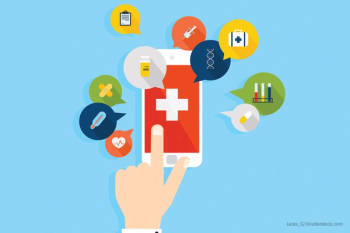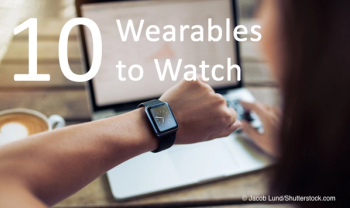
New Accenture research reveals how artificial intelligence can net health insurers big bucks.

New Accenture research reveals how artificial intelligence can net health insurers big bucks.


The amount of data in healthcare is growing, but that’s not necessarily translating to improved patient outcomes. Here’s why.

In response to the lack of transparency, health organizations are creating drug pricing tools that deliver patient-specific pricing. Here’s how they work.

A report from KLAS Research ranks sheds light on these popular tools and how vendors are missing the mark.

Executives speculate on what’s next following the remote patient monitoring CMS rule.

Bradford Curtis, MD, FAAP, vice president and senior medical director at OptumRx, talks with Managed Healthcare Executive Editorial Advisor David Calabrese, RPh, MHP, about the future of provider engagement.

Cutting-edge technologies, as well as upgrades to existing technology tools, will improve diabetes care. Here's how.

A HealthMine survey has interesting results about Medicare Advantage members’ knowledge about virtual care. Here’s six ways to reach them.

Reasons organizations have traditionally had for not sharing data with each other are breaking down, opening a new type of conversation between payers and providers. Here’s how.

Measuring success in the value-based care era requires establishing a baseline and implementing new technology tools.

Ready to conquer your email inbox? Here are tips for healthcare executives.

A new study may offer healthcare organizations a new way to close gaps in care while simultaneously engaging the patient as a partner in care.

Artificial intelligence (AI) in healthcare is no longer a futuristic idea. Organizations are benefiting-on administrative and clinical levels-from practical adoptions that make cost savings and better patient care a reality.

FDA’s new guidance provides a roadmap for health executives on incorporating EHRs into clinical trials.

Artificial intelligence is about to do what we hoped to see technology do in the last decade for the health industry: Empower organizations and clinicians to improve the health, outcomes, and experience of care for more people in less time and at lower cost.

Managing members with chronic conditions is a complex, costly challenge for health plans. Using AI to combine real-time patient data and guideline-directed medical therapy can help.

A survey from Imprivata has surprising findings about the magnitude of the patient matching problem.

As more apps come to market, wearable users look for more sophisticated devices. Here are 10 of them.

Marketing analytics can help drives decision making in healthcare. Here’s four best practices healthcare marketers should live by.

Sometimes simple is better, particularly when you’re a busy healthcare executive. These 10 apps will take you only seconds to learn to use, but they will result in hours of time savings.

Find out what’s in store for remote patient monitoring in a new CMS broad package of payment and policy changes for home health agencies.


Access to medical records is key to building patient engagement. Here’s why some patients are struggling to access their own data.

These tools will reduce healthcare costs and improve care quality.